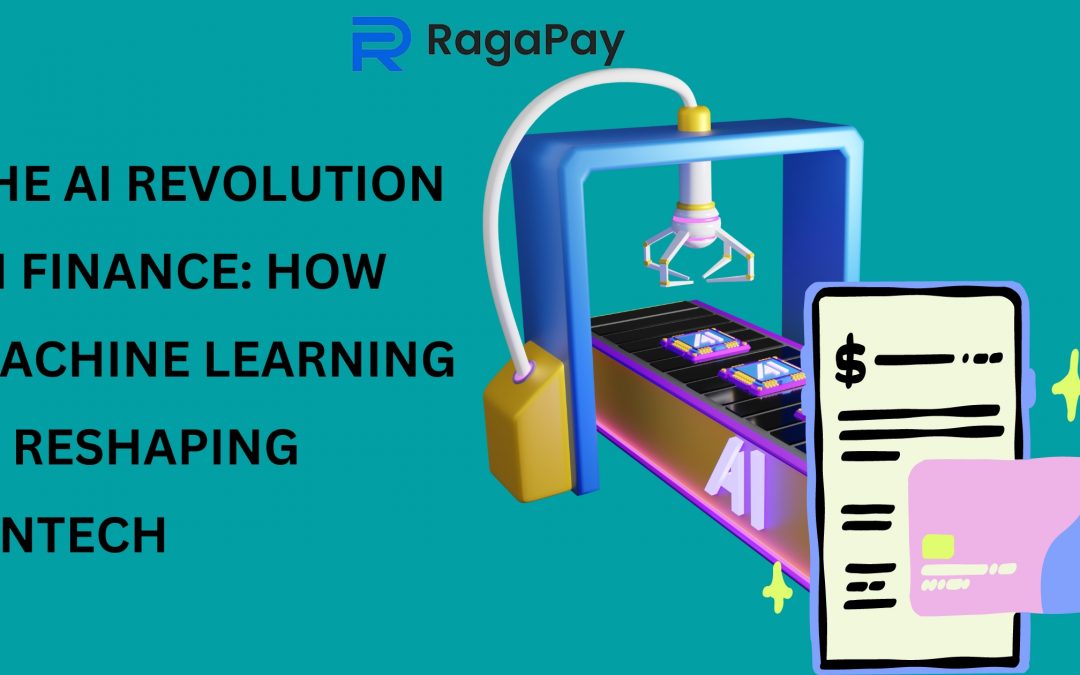Introduction
The financial services industry is experiencing a seismic shift driven by the transformative power of Artificial Intelligence (AI) and Machine Learning (ML). These intelligent technologies are no longer futuristic concepts; they’re rapidly changing the way FinTech solutions operate, making them more efficient, personalized, and secure. This blog post delves into the significant impact of AI and ML on FinTech, exploring how they are revolutionizing various aspects of financial services.
AI and ML: Powering the Future of FinTech
The integration of AI and ML into FinTech solutions is yielding a wave of innovative applications that are fundamentally changing how we interact with our finances:
Enhanced Fraud Detection:
Traditional methods of detecting fraudulent activity often rely on rigid rules and manual reviews, leaving them vulnerable to sophisticated criminal tactics. AI and ML algorithms, however, can analyze vast troves of financial data in real-time, identifying anomalies and suspicious patterns that might indicate fraud. This proactive approach significantly reduces financial losses for both FinTech companies and their customers.
For instance, AI-powered systems can analyze a user’s spending habits and location data. If a transaction deviates significantly from the user’s typical spending patterns or occurs in a geographically illogical location, the system can flag it for potential fraud, allowing for immediate intervention.
Streamlining Loan Underwriting:
Gone are the days of lengthy loan application processes riddled with paperwork. AI-powered systems can streamline the process by analyzing a borrower’s financial data, including credit history, income statements, and even online behavior to make automated underwriting decisions. This not only expedites loan approvals but also allows FinTech lenders to reach a wider audience by offering more flexible loan options and competitive rates based on a more comprehensive risk assessment.
Personalized Financial Guidance:
AI algorithms can become your personal financial advisor, learning from your financial data and spending habits. These intelligent systems can generate personalized recommendations for budgeting tools, investment opportunities, and other financial products tailored to your specific needs and goals. This level of personalization empowers users to make informed financial decisions and achieve their long-term financial objectives.
Imagine an AI-powered budgeting app that analyzes your income and spending patterns, automatically categorizes your transactions, and suggests areas where you can optimize your spending. It can even connect with your investment accounts and recommend suitable investment options based on your risk tolerance and financial goals.
Improved Risk Management:
Financial institutions can leverage AI and ML to create a more holistic understanding of potential risks. By analyzing historical data, market trends, and economic indicators, these systems can predict potential risks with greater accuracy and suggest appropriate mitigation strategies. This proactive approach fosters stability within the financial system by minimizing risks for both institutions and investors.
For example, AI can be used to assess the creditworthiness of borrowers in emerging markets where traditional credit history data might be limited. By analyzing alternative data sources like mobile phone usage patterns and utility bill payments, AI can create a more comprehensive risk profile, allowing FinTech companies to offer financial services to a previously unbanked population.
Enhanced Customer Service:
AI-powered chatbots and virtual assistants are transforming customer service within the FinTech industry. These intelligent tools can answer basic customer queries, resolve simple issues like password resets, and even guide users through complex financial processes, all in real-time and readily available 24/7. This not only enhances customer experience but also frees up human support staff to focus on more complex customer interactions.
Key Factors for AI and ML in FinTech
While AI and ML offer a plethora of advantages, it’s crucial to acknowledge some key considerations:
Data Security and Privacy:
The extensive use of personal financial data necessitates robust data security measures. FinTech companies have a responsibility to ensure user data is protected, used responsibly, and complies with data privacy regulations.
Algorithmic Bias:
AI algorithms can perpetuate existing biases if not carefully designed and monitored. It’s critical to ensure that these systems are developed and implemented in a fair and ethical manner to avoid discriminatory practices.
Conclusion:
The integration of AI and ML into FinTech solutions is still in its early stages, but the potential for further innovation is immense. As these technologies mature, we can expect even more groundbreaking applications that will reshape the future of financial services. The future lies in a collaborative approach where human expertise and the power of AI work in tandem to create a FinTech landscape that is efficient, secure, and empowers users to make informed financial decisions with confidence. This symbiotic relationship will pave the way for a more inclusive and accessible financial system for everyone.

